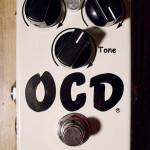In celebration of my soon to be released Special Report How to Stop Anxious Thinking I've decided to run a competition. To enter the competition all you have to do is submit a short story describing your most memorable triumph over anxiety. Whether it was overcoming panic, public speaking, or extreme nervousness in any number of situations. Be creative. In one week I will select the winner and give that person a free copy of How to Stop Anxious Thinking and publish their entry on Anxietyguru.net. Here are a few quick
Coming Soon: Anxiety Guru Special Report
I mentioned a few weeks ago that I've been working on an ebook and today I just wanted to follow up on my initial introduction. I've been working on what I call a special report for about 3 months now. The special report is a 50 page white paper on how to stop anxious thinking. I've been wanting to write and publish this report for some time, but I always put it off because I felt that it takes a lot more effort to write reports than it does to write a blog post. The problem, however, wasn't the increased effort needed, but the fact that
Drugs for Depression and Anxiety Linked to Premature Births
Reuters reports that a new research study shows that antidepressants and Benzodiazepines can increase risk of premature birth. Women taking antidepressants during pregnancy increase chances of have a preterm baby by up to 5 times. Same risk not seen in women that started drug therapy before pregnancy or during first 3 months. Antidepressants on this list include Zoloft, Paxil, Prozac. Benzodiazepines linked to premature births include Atvian and Xanax. CLICK HERE to read the full story. Should pregnant women take drugs like
Study: Antidepressants May Not Work on Mild Depression
Story Hightlights Study says that antidepressants may not be effective on mild depression. Placebo and antidepressants performed similarly in people with mild depression. Study is limited however because only Paxil and Tofranil were studied. Over 2,164 clinical trials examined for study. Critics claim that the clinical trials examined were too short. Antidepressants still effective in people with major depression. To read the whole story CLICK HERE. Goal: $200 Donations: $25 Every Dollar Matters Find out why I'm
Big Pharma Rejected
News: Pfizer's epilepsy drug Lyrica was recently rejected by the FDA as a treatment option for generalized anxiety disorder. The FDA claims that there is not enough data to support the unlabeled use of Lyrica. Pfizer isn't happy and claims that this drug could help anxiety sufferers. CLICK HERE to read the full story. Editor's Note: Now, is it just me or does something seem wrong here? It seems like anxiety disorder always gets the short end of the stick when it comes to drugs. You always hear about drugs meant for
High Blood Lead Skyrockets Risk of Panic Disorder
News: New Research links high blood lead to increased risk of panic disorder and depression. Lead levels that were thought to be safe can cause damage to the central nervous system. Lead may also interfere with Serotonin levels in the brain. It argued that exposure to lead must be reduced. CLICK HERE to read full story.
Researchers: Fearful Memories Can Be Erased
Researchers from New York University recently conducted a study which they hope will uncover therapeutic techniques to erase fear memories. The experiment involved creating a fear response in subjects and then extinguishing those memories during whats called the "reconsolidation phase" of the memory forming process. Although their findings are still general in scope, the researchers believe that eventually behavioral modification therapies could be developed to recall fearful memories and then rewrite them much like computer files are
“Depression, Anxiety Linked to Weight Gain”
Click the image to read the full story.
Reuters: Brain Implant Approved For OCD Treatment In Europe
photo credit: Roadside Guitars Article Highlights: Medtronic recently received approval for an implantable brain device to treat OCD in Europe. The device is designed to stimulate certain parts of the brain to help with OCD symptoms. The device uses technology similar to other devices used to treat Parkinson's Disease. Research indicates that up to 2/3 of patients using the implants see improvement in their OCD symptoms. Click the image or click here to read the full story.
- « Previous Page
- 1
- 2
- 3
- 4
- …
- 7
- Next Page »

